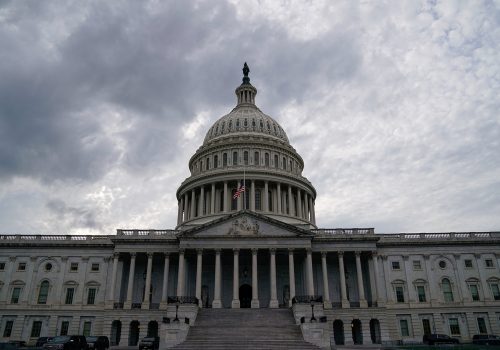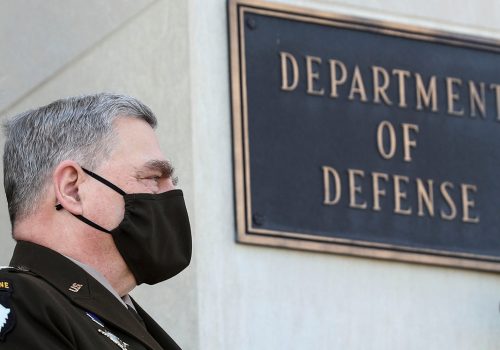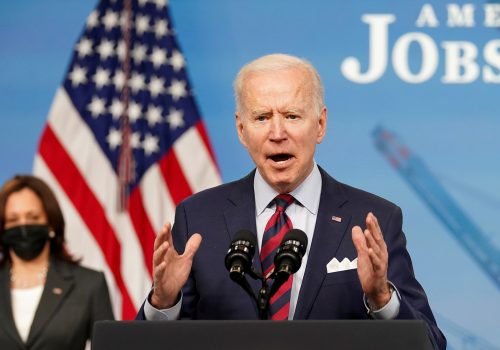FastTake: What’s missing from US Intel’s 2021 Threat Assessment
- The Director of National Intelligence’s Threat Assessment for 2021, released this week, outlines the US intelligence community’s projection of the most dangerous threats to the United States over the next year—beginning with China as the primary threat facing the United States and proceeding “down the list” to Russia, Iran, and North Korea; then moving to transnational issues such as COVID-19, climate change, and terrorism; and then outlining ongoing instability in key regions of the world.
- In so doing, the report nicely parallels both the Biden administration’s Interim National Security Strategic Guidance, released last month, as well as the preliminary outline of the administration’s fiscal year 2022 budget, which was just presented to Capitol Hill.
- The report’s assessment of disruptive technologies as major geopolitical tools is a relatively novel and long overdue element of this annual report, and one that we should expect to grow in prominence and importance throughout this new, turbulent decade. The Threat Assessment begins to address the challenges of the Fourth Industrial Revolution that are bedeviling the decentralized United States but proving easier to surmount for the autocratically centralized China amid its push to replace the United States as the dominant power on earth by 2050.
- What’s missing from this assessment, however, is the much more difficult undertaking of anticipating surprise. Everything in the report is widely appreciated across Washington. Given the need to coordinate and reach consensus on the document’s key conclusions across the US intelligence community (IC), it is understandable that this more speculative element doesn’t appear in the report. But when we don’t practice the art of strategic foresight, we may leave ourselves vulnerable to strategic blind spots (the IC, for example, didn’t see the Arab Spring coming).
- And while the IC recently released its latest long-range assessment, “Global Trends 2040,” foresight also must be applied to the near-term—especially amid the rapid geopolitical transformations we are currently witnessing.
- Of course, we human beings cannot predict the unexpected with fidelity. But we can list some of the possibilities that should be on policymakers’ radar screens. Why not, for instance, take the opportunity of the annual Threat Assessment to explore the possibility of China successfully challenging the US dollar with its own digital currency, or of the “balkanization” of the internet making it impossible for the foreseeable future to find agreement on international standards?
- In the aftermath of major strategic shocks, we can’t afford failures of imagination that make us less resilient to the next potential shocks. Future annual Threat Assessments should include some element of informed speculation about how the United States might be surprised in major ways. Such an intellectual exercise could enlighten and enrich the thinking of policymakers tasked with protecting Americans from threats.
- Policymakers also should recognize the importance of this over-the-horizon thinking. After World War II, former US President Dwight Eisenhower turned to Project Solarium, which brought together public- and private-sector thinkers and futurists, to stake out a clear, long-term strategy that carried the United States successfully through the entire Cold War.
- Bottom line: As we enter the third decade of the twenty-first century, the United States appears strategically lost, without a plan for the future and overly reliant on past glories. Without structured strategic thinking and planning, there is nothing inevitable about continued American power and the good that it has and still could do for the United States, US allies and partners, and the world. The intelligence community must provide that. And the policymaking community must be willing to listen.
Barry Pavel is senior vice president and the founding director of the Scowcroft Center for Strategy and Security at the Atlantic Council.
Ronald Marks is a former CIA official and Hill staffer who is currently a visiting professor at George Mason University’s Schar School of Policy and Government.
Further reading
Image: The U.S. Capitol Building in Washington, DC on Feb. 12, 2021. Photo by Oliver Contreras/Sipa USA via Reuters.


